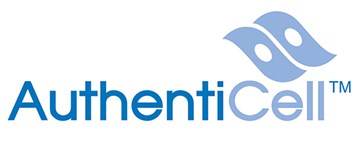Why is authentication important?

Authentication of cell lines is important in scientific research to ensure that you are not working with cells that are misidentified or cross contaminated. Authentication of cell lines is a fundamental part of good cell culture practice and is increasingly required in order to secure funding for research and for publication in scientific journals.
ECACC's AuthentiCell offers cell line authentication services for both human and animal cell lines.
Why authenticate cell lines?
• Approximately 20% of cell lines are misidentified or cross contaminated
• Grant awarding bodies now require evidence of cell line authentication
• Science article by Christoper Korch on the financial impact of cell line misidentification
Raising awareness of cell line misidentification
In 2012, ECACC co-founded the International Cell Line Authentication Committee (ICLAC). ICLAC aims to ensure that cell line misidentification has a much higher profile and promote awareness of the adverse scientific consequences. In addition to ECACC, ICLAC members also include representatives from other international cell culture collections and respected scientific researchers committed to championing the importance of verified cell line identity.
There are documented cases where researchers have unwittingly used a cell line claimed to represent one type of tissue which has subsequently been found to be from another tissue and/or individual. One of the consequences has been the retraction of scientific publications; in some cases, delays to the progress of drug development have arisen. It is estimated that 15 – 20% of cancer research publications are based on work using misidentified cell lines1.
ICLAC evolved from the global committee that published a standard (American National Standards Institute [ANSI] ASN-0002) for the authentication of cell lines and now administers and publishes the internationally recognised database of misidentified cell lines.
As understanding of this issue grows, an increasing number of researchers are opting to source authentic cell lines and use the cell line authentication services offered by ECACC.
Watch our video:
References
1. Freshney R. I. (2010) Database of misidentified cell lines. Int J Cancer. 126: 302-04
Further information:
-
Nardone's letter emphasizes the urgent need for improved cell culture practices. Read about Nardone open letter.
